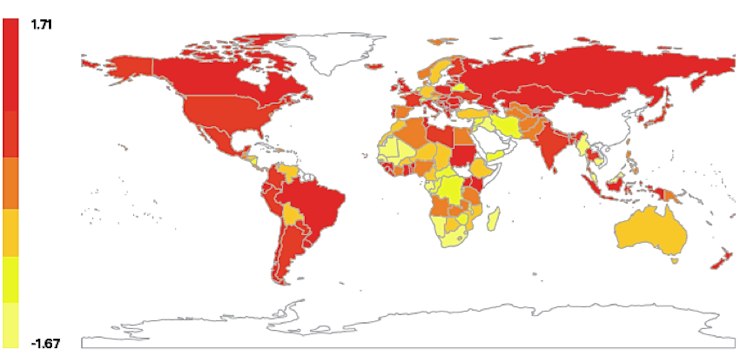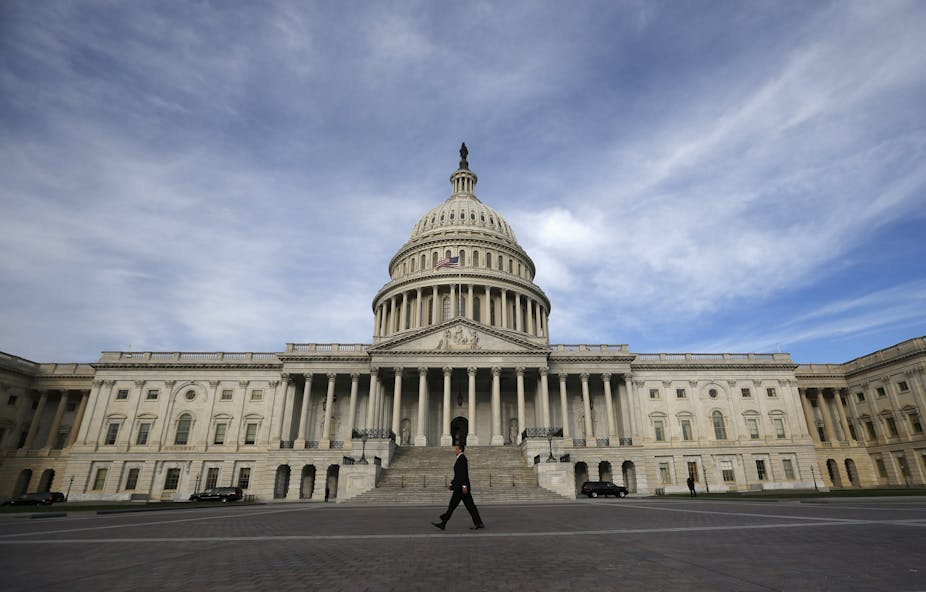What do Russia, the US and South Africa have in common? Not often lumped together, all three countries face significant challenges regulating money in politics.
Through the careful manipulation and extreme regulation of political finance, Vladimir Putin and his United Russia party have been able to entrench their rule. In South Africa, the complete lack of regulation – bar public funding – has served the African National Congress well to maintain its dominance. The US has created a system of political finance that ensures inherently unequal opportunities for participation.
But Australians need not look offshore to see how debilitating the misuse of money and state resources is for representative government. The Independent Commission Against Corruption has revealed the extent of scandals in NSW politics in recent years.
The role of money in politics challenges both rich and poor countries. Its abuse raises problems of graft, corruption and cronyism. It undermines legitimacy and governance.
However, money is essential for mobilising election campaigns, sustaining political party organisations and communicating with citizens. And countries like Sweden have managed to avoid falling foul of malfeasance and graft, despite almost no regulation of money in politics.
So, how can the role of money in politics be cleaned up most effectively? New evidence is available from a comparative report and dataset just released by the Money, Politics and Transparency project, produced by Global Integrity, the Sunlight Foundation and the Electoral Integrity Project.
The Money, Politics and Transparency project investigated three crucial questions:
How do countries around the world attempt to regulate the role of money in politics?
What triggers landmark reforms?
What “works”, what fails, and why?
The project website presents evidence from its political finance indicators, comparing 54 countries worldwide. The report compares how this problem is tackled in emerging economies as diverse as India, Mexico, South Africa and Russia, as well as in established democracies such as Britain, Japan, Sweden and the US.
How do states regulate money in politics?
Policies regulating the role of money in politics include disclosure requirements, contribution limits, spending caps and public subsidies. Most countries use a combination of these policies to try to regulate the flow of money into the political arena.
Another way to think about regulation is the degree to which governments intervene in the system of political finance. This can range from laissez-faire or minimal intervention, such as having only transparency requirements, to extremely comprehensive regulations involving all four policies.

Using data from the International Institute for Democracy and Electoral Assistance, the project used statistical techniques to show that while countries such as South Africa, Sweden and India have more laissez-faire policies, others such as Brazil, Indonesia and Russia are more interventionist.

It is difficult to say whether more or less legal control is better. This is, in large part, because effective regulation requires enforcement. India has a highly regulated system of political financing but its enforcement capabilities are so weak that more laws simply lead to almost all political actors increasing their efforts to find loopholes.
And not every country is like Sweden. Its unique social and political culture allows it to have a highly effective and egalitarian system of political funding. Sweden has high levels of transparency and a level playing field in party competition – despite almost no regulation.
The project’s political finance indicators find that transparency requirements are one of the most common reforms implemented during the last decade. But disclosure rules are often inconsistently applied.
The results suggest that eight out of ten countries have statutes requiring parties and/or candidates to submit contribution and expenditure reports. But this rarely happens during campaign periods. The public is therefore unable to access much of the information reported to oversight authorities.
Further, restrictions on contributions and expenditures are often undermined by loopholes. For example, laws often limit the amount an individual can donate directly to a political party or to a candidate, but not both. Similar loopholes in regard to anonymous and corporate donations are common.
Spending limits also fail in many cases. Few countries also regulate election spending by non-profits, unions and independent groups. This is regarded as a private activity.
Finally, states have adopted public funding and subsidy laws to reduce dependence upon private sector donors and the dwindling band of party members. In practice, however, funds can be unfairly allocated or subject to misuse and abuse by incumbent parties and candidates.
How do we clean up politics?
Designing a “good” system of political financing will necessarily entail trade-offs between values such as individual freedom of expression and equitable political competition.
There is no one-size-fits-all design. Much will depend on country-specific factors that determine which values are emphasised.
For example, the US is all about individual freedoms. This is acutely reflected in its haste to deregulate political finance. The trade-off is that political participation becomes highly unequal.
Effective laws depend upon enforcement capabilities, political will and autonomous oversight agencies. However, oversight bodies are often hamstrung through a lack of merit-based appointments, independent leadership, technical capacity and authority. Partisan appointments, insufficient staff and budgets and/or a lack of substantive legal power hinder oversight bodies in countries as diverse as the US, Romania, Nigeria and Russia.
Countries should not rely on a single policy tool to try to control money in politics. And policies must be applied in a consistent way.
For instance, public funding without spending or contribution limits can lead to a campaign finance arms race. Disclosure requirements without spending caps or equitable public funding may erode public trust in the electoral process. The project finds that it is more effective to use a balanced mix of regulations fitting each country.
Lax regulation can lead to skyrocketing campaign costs, corruption, cronyism and winner-take-all politics. And yet, excessive regulation can lead to loophole-seeking and entrenched elites.

